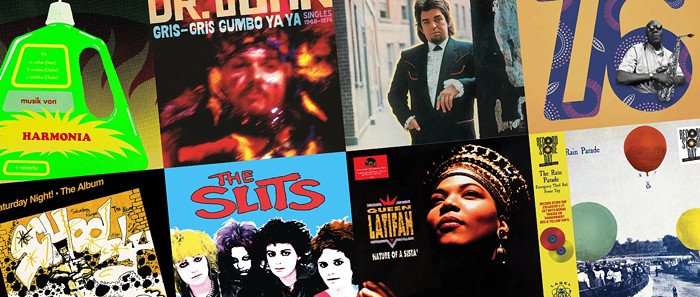
Pedro Bell, the artist behind some of the most iconic and freakishly detailed album-cover images in music history, has died at age 69. No cause of death has been reported, but Bell had been in poor health for many years.
Throughout the '70s and '80s, he drew phantasmagorical illustrations for Funkadelic and George Clinton LPs that were as crucial as the music to understanding those artists' work. Bell's extravagant imagination and sci-fi-fried surrealism provided the ideal visual analogue to Clinton and company's expansive fusion of psychedelic rock and funk. An author of Funkadelic's liner notes as well as an illustrator, Bell was a master of excess and a brilliant balancer of the playful and the profound, the beautiful and the grotesque. His intricate, narrative style has been credited as an influence on the graphic novel.
Bell's first assignment for Funkadelic was 1973's Cosmic Slop LP. Inspired by the artwork on Frank Zappa and the Mothers of Invention's albums, Bell went on to design covers for 1974's Standing on the Verge of Getting It On, 1975’s Let’s Take It to the Stage, 1978’s One Nation Under a Groove, and 1981’s The Electric Spanking of War Babies. (Warner Brothers censored Bell's original design of the latter release because it included a nude women inside a phallic-looking spaceship.) He also crafted similarly rococo eye-dazzlers for Clinton's Computer Games (1982), You Shouldn’t-nuf Bit Fish (1983), Some of My Best Jokes are Friends (1985), and R&B Skeletons in the Closet (1986).
On George Clinton's website, an anonymous writer summarized Pedro Bell's extraordinary talents as well as anybody I've ever seen.
What Pedro Bell had done was invert psychedelia through the ghetto. Like an urban Hieronymus Bosch, he cross-sected the sublime and the hideous to jarring effect. Insect pimps, distorted minxes, alien gladiators, sexual perversions. It was a thrill, it was disturbing. Like a florid virus, his markered mutations spilled around the inside and outside covers in sordid details that had to be breaking at least seven state laws.
More crucially, his stream-of-contagion text rewrote the whole game. He single-handedly defined the P-Funk collective as sci-fi superheroes fighting the ills of the heart, society, and the cosmos. Funk wasn’t just a music, it was a philosophy, a way of seeing and being, a way for the tired spirit to hold faith and dance yourself into another day. As much as Clinton’s lyrics, Pedro Bell’s crazoid words created the mythos of the band and bonded the audience together.




















